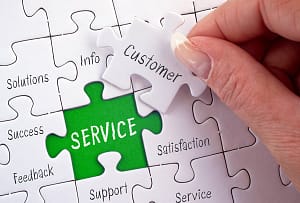Sustainability is related to the development of products, goods, and services in a way that meets our present needs without compromising the environment for future generations. Sustainability as a concept recognises that the environment is not an infinite resource. Therefore, it is important to use the environment and its resources carefully and protect it for the good of the Earth, our environment and humanity.
In the business world, sustainability is associated with an organisation’s whole approach, taking into account everything, from manufacturing to logistics to customer service. Going green is beneficial for the company, and it also maximises the benefits for the environment in the long term.
So what is a ‘sustainable product?’ “Sustainable products are those products that provide environmental, social and economic benefits while protecting public health and environment over their whole life cycle, from the extraction of raw materials until the final disposal” [Source: Wikipedia]. So it is vital to consider the product life-cycle. One of the simplest ways to reduce environmental damage is to ensure that, wherever possible, the products you use are reusable time and again – thus extending their life cycle.
Why sustainability in companies is important
Sustainability and its impact on the environment that we have are important topics in today’s world. Now, more than ever, consumers are concerned about generating waste for landfill, and recyclable materials are increasingly popular. A recent study by Forbes showed that 88% of consumers want companies to help them make a difference by being more environmentally friendly and ethical.
Companies should do their utmost to be sustainable for the following reasons:
- It will preserve the environment and its resources for future generations – we all have a moral obligation to look after the planet.
- Reduced energy bills – switching to sustainable power like wind and solar power and using energy-efficient lightbulbs will reduce a business’s energy bills. Using electric vehicles will reduce fuel costs.
- A healthy environment – better air and water quality benefits us all, reducing the number of toxins released into the environment and an increased focus on recycling will make the world a nicer place to live in.
- Impact on society – by operating in a sustainable way this spreads the word to employees and their families, you can influence society as a whole to do their bit to protect the environment.
- It improves a business’s reputation – consumers like to purchase from companies that are environmentally friendly.
How companies can be sustainable
There are several steps companies can take to operate in a more sustainable way:
1. Use sustainable products
It’s fairly straight-forward to opt for sustainable products these days, there are many options out there. Businesses can swap plastic for bamboo or make sure the plastic they use is recycled. Make sure your own materials are recycled rather than sent to landfill. Many companies offer environmentally friendly products now – clothing, food packaging, beauty brands, furniture – it’s easy to source sustainable products if you try.
2. Sustainable billing
Go paperless to help the environment and encourage your suppliers to do the same. Bills sent by email rather than post have a smaller environmental impact than wasteful paper usage.
3. Supply e-brochures
Rather than having printed marketing material, consider sending brochures electronically or having a QR code for people to access the information. Brochures often end up in the bin so are wasteful products. If you do need printed materials, use recycled paper.
4. Think about transport
Switch to electric vans and cars where possible to minimise environmental impact. These will not only be a sustainable option but will reduce fuel costs. Share car transport if possible or use public transport.
5. Choose sustainable power
Install solar panels or heat pumps instead of relying on fossil fuels which are a finite resource and bad for carbon emissions. Industries must drop carbon emissions by 40% by 2060 to stop the planet from warming over two degrees Celsius.
6. Choose reusable products
In offices have reusable cloths and towels over paper towels. Try to reuse as many of your products as possible. Exhibition stand contractor Quadrant2Design behaves sustainably by reusing the stands they hire out to companies for many years. Stands are modular and can be reused and reconfigured for a fresh look multiple times. The products are robust and last for 15 years and are used many times a year. They also offer fabric graphics and carpet tiles to customers which can be reused and easily recycled.
7. Cut down on plastic
Plastic is not biodegradable, and it is difficult to recycle so much of it ends up in landfill or in our oceans where it does terrible damage to marine wildlife that eat it or get caught in it. Try to replace plastic with cardboard or bamboo which are much easier to recycle. According to a report from The New Climate Economy, 95% of plastic packaging — the equivalent of $120 billion annually — is wasted after the first use, and micro plastics have been found in 114 aquatic species.
8. Recycle
It goes without saying that to be sustainable you should recycle as much as possible and encourage your staff, suppliers and customers to do the same.
Investment in the future
It won’t be possible to maintain the world’s ecosystems or continue to function as we do if businesses, individuals and governments don’t make more sustainable choices. If harmful processes are maintained with no change, it is likely that we will run out of fossil fuels, large numbers of animal species will become extinct, and the atmosphere will be irrevocably damaged.
Recently, the UN issued The Sustainable Development Goals outlining its main aims to achieve a better and more sustainable future. They address global challenges to sustainability. The 17 Goals include sustainable economic growth, no poverty, zero hunger, clean water and sanitation, affordable and clean energy, and responsible consumption and production. These are challenging goals to reach it is hoped that they will be met by 2030. While they might be a challenge it is good to have goals for governments and businesses to work towards.
With the climate crisis, there is a current movement towards sustainability as a priority for businesses, as people start follow sustainable principals. Hopefully, in the future, moves to reverse climate change, improved impact on the environment, and productive input on society, will be goals met by organisations. Companies need to be made accountable for all aspects of industry, and any environmental damage or harmful emissions should be removed from production.
It is also anticipated that resources will be recycled to meet the needs of the global increase in population in what is generally referred to as a ‘circular economy’. This change would allow one person’s waste to be another’s resource, in a process that would greatly reduce waste and create a more efficient supply chain.
We all need to play our part to lead more sustainable lives, and that includes companies. By minimising waste, harnessing green energy, recycling and reusing as much as possible and reducing harmful emissions we can ensure the environment is preserved for future generations rather than decimated.






Leave a Comment